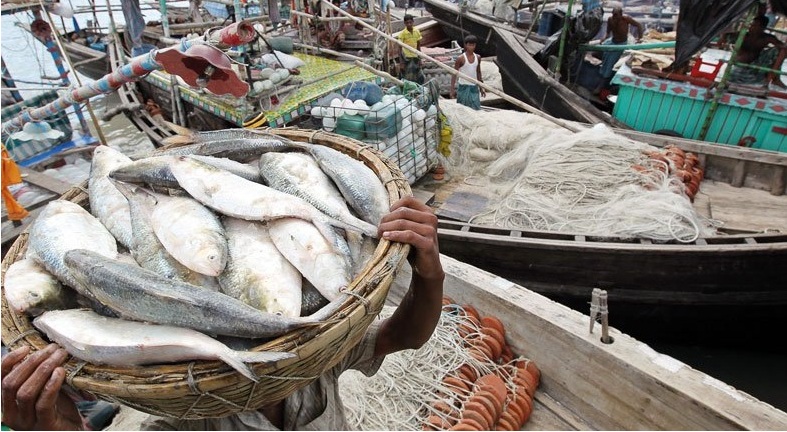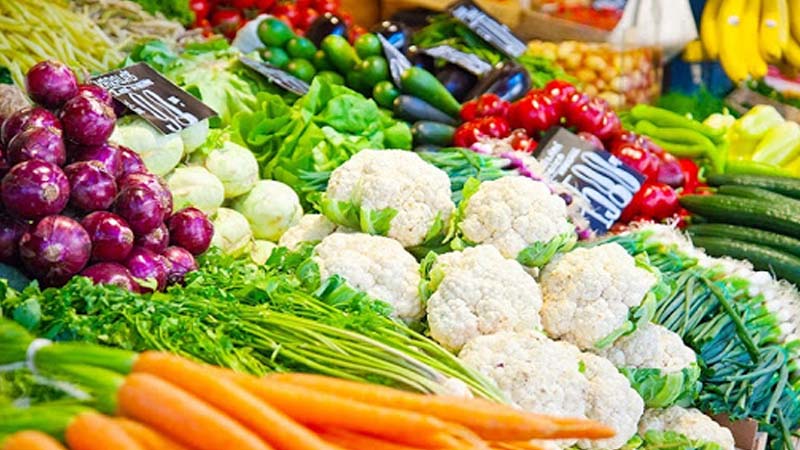Hilsa fish netted from the Bay and the Meghna estuary abound with the country's wholesale fish market as well as capital Dhaka.
Fishmongers in Dhaka are happy with the supply of hilsa as the markets are swarmed with catches from the sea.
The traders claim that the prices of the national fish, hailed as the King of Fish, have dropped due to the supply glut, but freshwater fish have gone costly because of shrinking catches amid floods.
Traders and customers of the kitchen markets in Segunbagicha, Shantinagar, Shahjahanpur, Malibagh, Rampura, and Badda said on Friday that they saw mostly big hilsas over the past week.
"Supply is very good at the wholesale markets. Prices have also dropped," said Md Shah Alam, a buyer, at Malibagh.
Earlier on the advent of season the fishermen and researchers of the Bangladesh Fisheries Department, and relevant experts assume that it resulted in positive growth in Hilsa production.
They say that this time the production of hilsa will break all past records.
They think that because of the lockdown, fishermen were unable to catch fish. And since the mills and factories were closed, it had a positive impact on the environment. River pollution decreased and the Hilsa production showed the positive effects.
Dr Bimal Chandra Das, Officer of Barishal Fisheries Department said that production of Hilsa has increased in the last few years. "Now, fishermen get large sized Hilsa. But in past, Hilsa weighing more than a kilogram was rarely seen in the market. And the prices were high too."
Large quantities of large Hilsa have been sold in the market this winter. The average weight of Hilsa has increased by 350 grams in the last three years. Alongside the size and weight, total production has exceeded the target, he added.
Hilsa production increased gradually because of the implementation of a ban on fishing in the sea at certain times, and the prohibition on catching jatka (small Hilsa) and mother Hilsa's in the sanctuaries at certain periods.
"Four of the Hilsa sanctuaries of the country are in Barishal. Hilsa and other species of fish roam freely in the river. The level of water pollution has been reduced as well. So, I assume that the breeding and reproduction of Hilsa will increase," Bimal said.
Bimal also believes that many local fish species that were lost may return to the rivers.
Md Jashim, a fisherman from Daulatkhan upazila in Bhola said, "I have been fishing Hilsa in the river for 20 years. Due to the lockdown, I could not fish. I think we will get a huge amount of Hilsa this season."
Ajit Kumar Das Manu, President of the Barishal Port Road Stockist Association, said that there were relatively few Hilsa in the rivers. A few Hilsa were netted by the fishermen and thus, there is a shortage of this fish in the market.
"Last year, we had a lot of Hilsa in the market, but this time the scenario is different. Some Hilsas are available, but those are sold at a high price. So, the fishermen are frustrated," said Ajit Kumar.
Each hilsa weighing between 1.5kg and 1.75kg is sold at Tk 1,200 to Tk 1,300 per kg. Hilsas weighing half a kg or lower are each being sold at Tk 500 a kg.
Faridul Islam, a resident of Malibagh, was happy with the size and price of the pair of 1.5kg hilsas he bought for Tk 3,500.
"Such big Hilsas are rare in other times of the year. I had to pay more than Tk 4,000 to buy a pair of big Hilsas earlier," he said.
Another trader, Saidul Islam of Rampura, also claimed Hilsa prices were lower than before.














